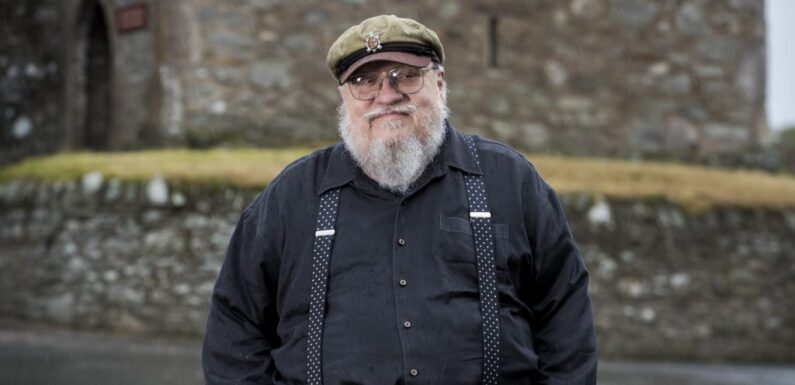
OpenAI’s ChatGPT is the target of a major new lawsuit, alleging the company illegally copied the copyrighted works of authors to train the artificial-intelligence robot.
Led by the Authors Guild, a New York-based professional organization for published writers, a group of 17 writers, including George R.R. Martin, John Grisham, Jodi Picoult, George Saunders and Jonathan Franzen, joined the proposed class-action lawsuit against OpenAI.
The lawsuit, filed Sept. 19 in the U.S. District Court for the Southern District of New York, seeks an injunction blocking OpenAI from continuing to use the authors’ works to train ChatGPT, as well as unspecific monetary damages (and statutory damages of up to $150,000 per infringed work). A copy of the complaint is available at this link.
A spokesperson for OpenAI said in a statement to the AP: “We’re having productive conversations with many creators around the world, including the Authors Guild, and have been working co-operatively to understand and discuss their concerns about AI. We’re optimistic we will continue to find mutually beneficial ways to work together.”
The lawsuit comes after a similar one was filed in July 2023 on behalf of Sarah Silverman and two other authors, accusing Meta and OpenAI of illegally using copyrighted works — including Silverman’s 2010 bestselling memoir “The Bedwetter: Stories of Courage, Redemption, and Pee” — to train their AI systems.
In the latest suit, the named plaintiffs are: David Baldacci, Mary Bly, Michael Connelly, Sylvia Day, Jonathan Franzen, John Grisham, Elin Hilderbrand, Christina Baker Kline, Maya Shanbhag Lang, Victor LaValle, George R.R. Martin, Jodi Picoult, Douglas Preston, Roxana Robinson, George Saunders, Scott Turow and Rachel Vail.
“This case is merely the beginning of our battle to defend authors from theft by OpenAI and other generative AI,” Maya Shanbhag Lang, Authors Guild president and a class representative, said in a statement. “Our staff, which includes a formidable legal team, has expertise in copyright law. This is all to say: We do not bring this suit lightly. We are here to fight.”
According to the Authors Guild-led lawsuit, the books OpenAI used to train ChatGPT “were downloaded from pirate ebook repositories and then copied into the fabric of GPT 3.5 and GPT 4, which power ChatGPT and thousands of applications and enterprise uses — from which OpenAI expects to earn many billions.” These “professionally authored, edited and published books” are “an especially important source of LLM [large language model] ‘training’ data,” the complaint states.
The org cited a recent attempt to generate volumes 6 and 7 of Martin’s “Game of Thrones” series “A Song of Ice and Fire,” as well as “numerous AI-generated books that have been posted on Amazon that attempt to pass themselves off as human-generated and seek to profit off a human author’s hard-earned reputation.”
Author George Saunders said in a statement provided by the Authors Guild, “I’m very happy to be part of this effort to nudge the tech world to make good on its frequent declarations that it is on the side of creativity. Writers should be fairly compensated for their work. Fair compensation means that a person’s work is valued, plain and simple. This, in turn, tells the culture what to think of that work and the people who do it. And the work of the writer — the human imagination, struggling with reality, trying to discern virtue and responsibility within it — is essential to a functioning democracy.”
The plaintiffs in the case are represented by law firms Lieff Cabraser and Cowan, DeBaets, Abrahams & Sheppard.
Read More About:
Source: Read Full Article